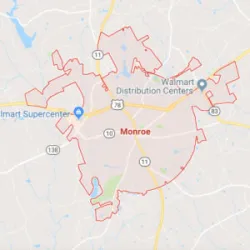
Transcript:
Elopement means the unsupervised walking of a resident in which the resident actually leaves the nursing home. As you can imagine, elopement can result in catastrophic injury or death. Sadly, the reported number of elopement cases continues to rise.
Residents with certain mental and physical characteristics are more likely candidates to commit elopement. Those with mental health issues such as dementia and Alzheimer’s Disease tend to wander more often. An additional factor is the level of the resident’s mobility. Residents with full mobility are more likely to elope than those who utilize walkers, rollers, or are bound to a wheelchair.
For a free legal consultation, call (678) 823-7678
Elopement has many recognized triggers. For example, environmental factors like heat, cold, noise, and brightness may cause stress to residents and cause the instinct to leave. In fact, studies show that as an individual’s cognitive capacity decreases, his or her ability to cope with external stimulus decreases. Other triggers include memory dysfunction, like seeking out the forgotten location of the bathroom, or reminiscent confusion, such as leaving to go to a friend’s house that has long since passed.
Elopement may be reduced through the implementation of preventative measures. First, residents should be assessed for their risk of elopement, and monitored accordingly. Second, nursing home staff should be trained to spot the stimulus or external factors triggering the behavior in residents, and be vigilant to eliminate those forces. Third, the nursing home should be secured. For example, locking all unnecessary doors.
Click to contact our nursing home abuse lawyers today
Under Georgia law, nursing homes are required to take steps to reduce the risk of elopement. If your loved one was injured or died after walking outside of a nursing home and you are wondering if you have a claim, then please, feel free to call and speak to one of our experienced Georgia nursing home abuse lawyers today. Our consultations are always free. If you would like more information about this topic, be sure to click on our other videos, or better yet, click the subscribe button to subscribe to our YouTube channel. Thank you.
Call or text (678) 823-7678 or complete a Free Case Evaluation form



